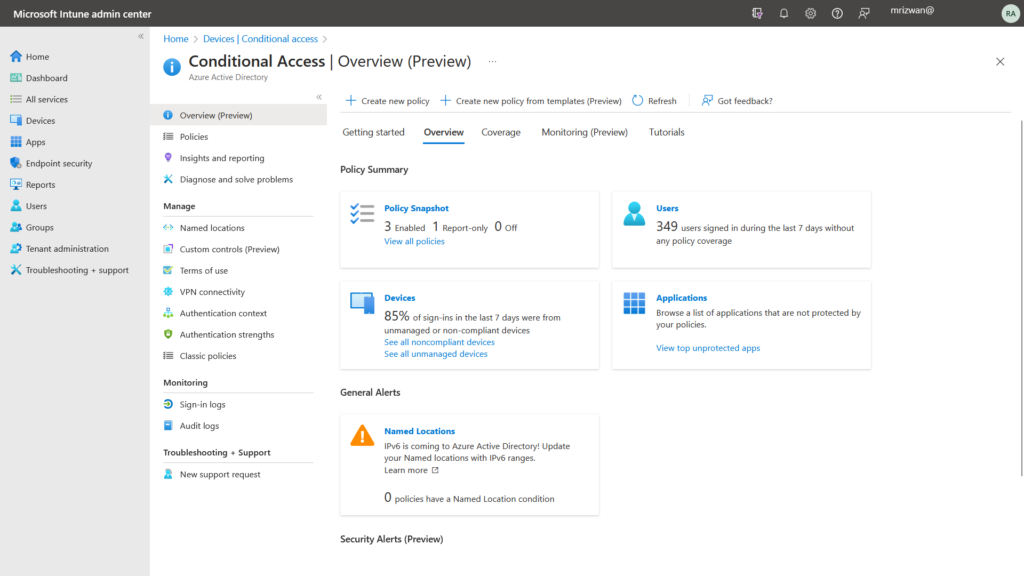Indeed, Conditional access in Intune offers granular control over data access and protects corporate resources effectively. It empowers organizations in the mobile and cloud-driven world with powerful security measures. Administrators define criteria for access, ensuring authorized users and devices can access sensitive data. Conditional access policies enforce specific criteria before granting access to company data and applications.

Conditional Access in Intune
Granular control and protection of corporate resources through dynamic access policies. You can understand it better with the below explained headings.
Dynamic and Context-Aware Security
Conditional access in Intune provides a dynamic and context-aware approach to security. Before granting access, it evaluates multiple factors, ensuring only authorized users and devices access sensitive information. Conditional access verifies factors, granting access to company data and applications solely to authorized users and devices. By considering various aspects such as device compliance, user identity, network location, and application sensitivity, conditional access policies mitigate the risk of unauthorized access and data breaches.
Device Compliance: Strengthening Security
One of the key components of conditional access is device compliance. Organizations set requirements for compliant devices: management agent installation, encryption, and specific security settings. Specific requirements, such as management agent installation, encryption, and security settings, ensure device compliance. Enforcing these criteria restricts access to corporate resources until devices comply, minimizing data leakage risks.
User Identity: Verification and Multi-Factor Authentication
User identity is a critical factor in conditional access. Intune integrates with identity providers like Azure Active Directory to verify user identities. In addition, administrators can enforce multi-factor authentication (MFA) as an extra layer of security. This ensures that even if a user’s credentials are compromised, unauthorized access is prevented unless the user successfully completes the MFA process, adding an extra level of protection against identity theft.
Network Location: Trusted Networks and Additional Verification
Conditional access policies can leverage network location as a criterion for access control. Organizations can define trusted network locations, such as the corporate office or specific IP ranges, where access to company data is allowed without additional verification. However, if a user tries to access resources from an untrusted network, such as a public Wi-Fi hotspot, additional authentication or device compliance checks may be required to ensure the security of corporate information.
Application Sensitivity: Tailoring Access Requirements
Conditional access policies can be tailored based on the sensitivity of the applications and data being accessed. Administrators have the flexibility to define different policies for different applications, allowing more stringent access requirements for highly sensitive data while being more permissive for less critical resources. This allows organizations to strike a balance between security requirements and user productivity, ensuring that the right level of protection is applied to the appropriate resources.
Benefits of Conditional Access in Intune
By leveraging conditional access in Intune, organizations can achieve a comprehensive and adaptive security framework. It enables a proactive security approach, assessing user, device, and network conditions for real-time access decisions. It reduces data breach risk while providing a seamless, secure user experience with dynamic access controls.
Conclusion
Conditional access in Intune empowers organizations to implement fine-grained security measures that adapt to the evolving threat landscape. By combining device compliance, user identity, network location, and application sensitivity factors, administrators can enforce access policies that ensure only authorized users and devices can access corporate data and applications. With conditional access, organizations can strike a balance between productivity and security, protecting sensitive information while enabling employees to work from anywhere, on any device.



